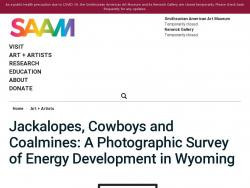Molly Chester's collections
Cold War Fears
<p>This is a topical collection about American fears during the Cold War. What were Americans afraid of? How were these fears expressed in United States culture? How successfully did the government address these fears?</p><p><br /><br /></p><p>Students and teachers may want to explore the resources in this collection to consider the psychological impact of the Cold War and how Americans prepared themselves for the unknown. </p><p><br /><br /></p><p>Tags: Cold War, McCarthy, UFOs, aliens, space race, fallout shelters, Civil Defense, radiation, spies, Hiss, Rosenberg, Murrow, Sputnik, cause and effect</p>
 Molly Chester
Molly Chester
14
APUSH WWI Propaganda
<p><u></u>This student activity includes a variety of types of propaganda related to World War I. The United States government took great action when it came to World War I—they helped organize workers, recruit military members, and regulate the economy so that American could have a successful impact on the war. The Committee of Public Information formed by George Creel and other propaganda-producers used advertising techniques from businesses to make appeals to the average citizen and encourage them to make a difference. This assignment will ask you to connect each piece of propaganda to one of four major goals of the U.S. government during the war and to analyze a few specific pieces for author, audience, purpose, and even the medium/form. </p><p>Essential questions include:</p><ul><li>What are the four main goals of the government during World War I?</li><li>Why and how did propaganda creators target specific audiences with their messages?</li><li>What are the effects of changing the medium or form of propaganda on how it might be received?</li></ul><p>Tags: World War I, WWI, selective service, draft, liberty bonds, propaganda, music, Uncle Sam, persuasive writing, cause effect</p>
 Molly Chester
Molly Chester
14
Columbus Day: Should this still be a thing?
<p>As the classroom rhyme goes, Christopher Columbus sailed the ocean blue in 1492 and discovered America. But there is more to the story of the explorer we celebrate with a federal holiday on the second Monday of every October. As historians have continued to learn and write more about the real life of Christopher Columbus, controversy has arisen over the validity of honoring the explorer as a hero.</p>
 Molly Chester
Molly Chester
5



